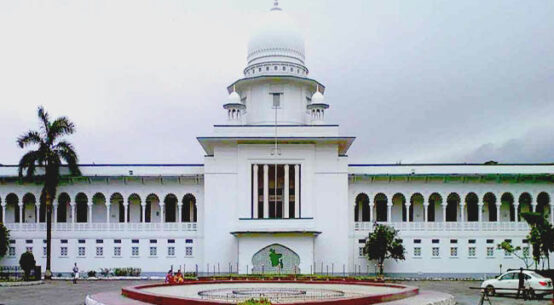
After a 21-year-lull, advocates for the access to Information Bill can now sigh with relief after the Zambian Government committed to pushing the much heralded pledge into law-enhancing press and citizen’s unwavering freedom to information amid misinformation, disinformation and the emerging digital media.
Zambia’s cabinet had during a meeting it held on 27 July resolved to hasten the Access to Information Bill, 2023 for legislation into law before lawmakers in Parliament.
The cabinet, according to chief Government and Minister for Information and Media Chushi Kasanda has given approval in principle to the introduction of a Bill in Parliament to provide for an access to information law.
The long awaited bill, if enacted, is expected to ease the accessibility of information of public nature from public and relevant private bodies by the general citizenry.
“Access to information is necessary for the purposes of promoting a culture of self-restraint among public officers, preventing corruption in Government, preventing the spread of misinformation and/or falsehoods and generally reducing criticisms against Government, most of which is as a result of lack of information.” Minister Kasanda said in a statement.
Arguably, the action by cabinet entails the Government granting an initial approval for the introduction of the Access to Information Bill in the Parliament. This makes a significant step towards promoting transparency, accountability, and curbing corruption.
Once enacted into law, the Access to Information Bill seeks to further empower citizens with easy access to information from both public and relevant private bodies. The bill is envisioned to be a powerful tool in preventing corruption, countering misinformation, and debunking falsehoods that may hinder the nation’s progress.
The government’s decision to push for the Access to Information Bill reflects its commitment to open governance and a desire to foster a more informed and engaged citizenry.
By granting the public greater access to information, the government seeks to enhance public trust and strengthen democratic institutions. The ATI was one of the ruling party’s campaign bedrock to ascend to power, which many await to see actualised.
There has been sustained outcries for press and public freedom of information campaigners since 2002 for the law to be enacted and allow for the free-flow of information that will galvanise the country’s return to democracy it did in 1991.
This was after 27 years of autocratic rule since independence in 1964.
Free Press Initiative (FPI), a Non-Governmental Organisation-inclined towards press freedom one of the media inclined- while commending the cabinet’s endorsement for approval of the bill into Parliament for debate says it receives with reservations and that the belated action was a matter of right.
Executive Director Joan Chirwa, whose organization is part of the ATI Coalition that has been calling for the enactment of the ATI law as a matter of right is hopeful the provisions of the Bill to be tabled in the National Assembly remain progressive and to the benefit of the citizens under whose watch effective implementation of democratic principles rests.
The decision has come at the right time because the need for information among Zambian citizens is high.
Given the ‘abundant disinformation’. the enactment of the ATI would be a landmark platform for the Government to be open enough in providing information around implementation of numerous projects that are of interest to the citizens.
The journalists would now have access to documents that warrant their role as fourth estate, having had trouble accessing vital information which has been denied to them because of the various outdated laws.
Chirwa is however skeptical of the Government’s intentions until actualized noting that the pronouncements made were not the first.
“This is not the first time the country has reached the current stage because the MMD (former ruling Movement for Multiparty Democracy) Administration once introduced the Bill in the National Assembly but was shot down in the first stage of it being in the House. “
Media Institute of Southern Africa-Zambia Chapter welcomes the Government action arguing: “it will ease access to information of public nature from public and relevant private organizations and institutions.”
“The Access to Information Bill will empower citizens with the right to access government-held information, paving the way for a more informed and engaged public.” Says its chairperson, Rev.Fr. Barnabas Simatende.
By ensuring the public’s right to access information of public nature, this legislation will foster trust and strengthen confidence between the government and the governed especially that Zambia has set decentralisation as one of the major drivers of development.
MISA was gratified with the pronouncement given the emerging digital connectivity which demands sharing of information and that if enacted would help in dispelling disinformation and misinformation as well.
The media watchdog is hopeful the lawmakers will during the legislative process ensure the ATI Bill is enacted, noting the delays that have characterized the actualization of the Bill into law.
“Our concern arises from the fact that the government had promised to enact the ATI Bill by June 2023 but the announcement on Cabinet approval only came on 28 July 2023. he says
“However, we are optimistic. Our optimism arises from the fact that the government not only promised but did repeal Section 69 of the Penal Code that provided for Defamation of the President.”
Under the Zambian Constitution, statements perceived to demean the Presidency carries stiffer penalties including incarceration of both media personnel and ordinary citizens.
MISA Zambia hopes this will catalyse the amendment to the country’s law and infuse a clause enhancing access to information from public institutions and organizations because they develop policies, programmes and manage public resources or provide public service which is funded by the citizens.
“ATI Law should allow citizens to be part of the decision making and enable them to benefit from public programmes and resources.”
Other campaigners say the action by the Government on the ATI was long overdue, given the various attempts that have been made to review the draconian laws that impede media and general citizenry’s access to vital information relating to good governance.




